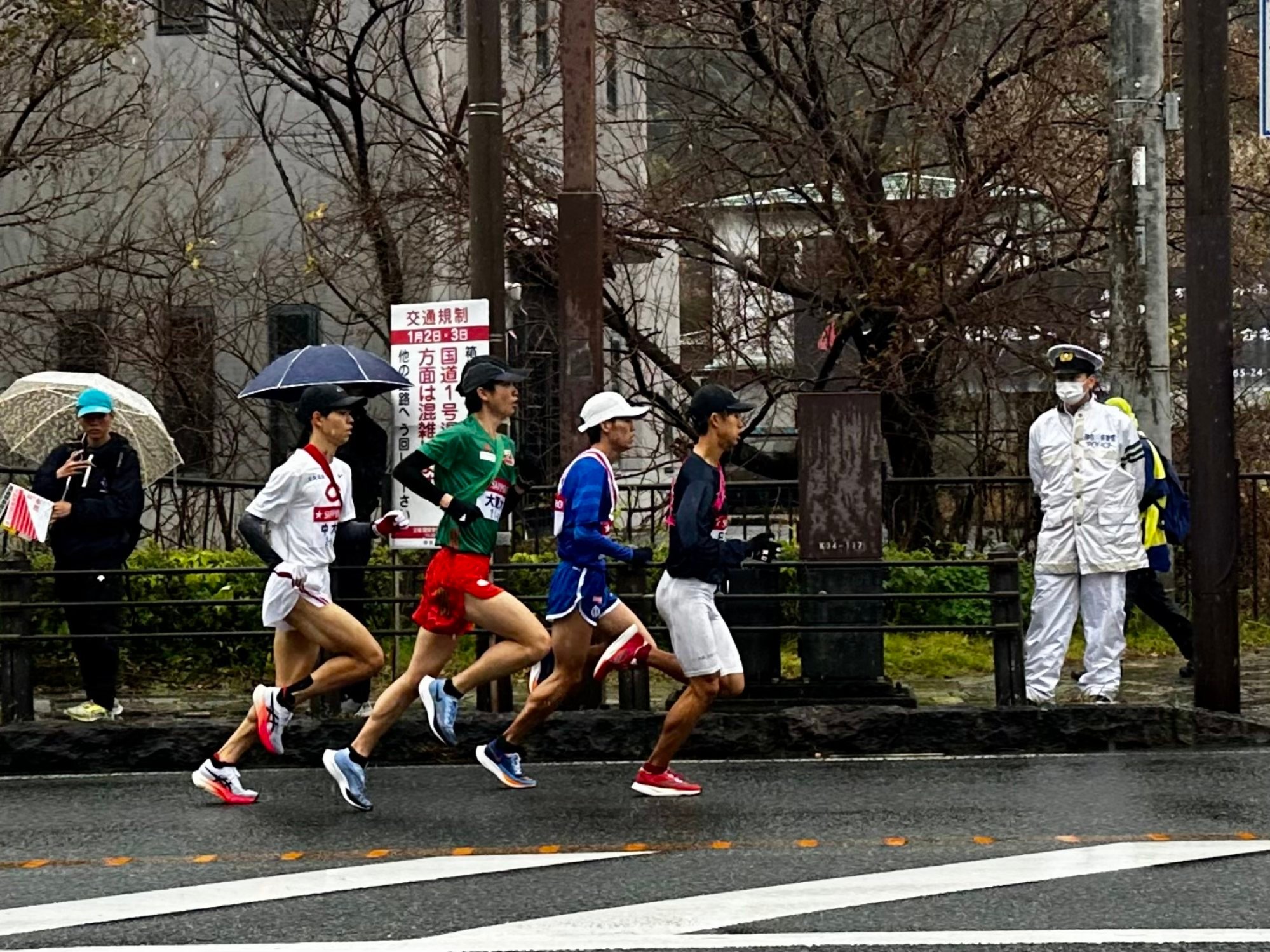Britain laces up for a Japan-style 116km relay as Emperor Naruhito visits
Elite university runners were aware of the “strength and depth” of long-distance running in Japan, and an ekiden race was a good opportunity to test themselves, she said.
Other teams competing in the event will represent Japanese companies with a presence in Britain, British firms with links to Japan, and those representing running clubs and community organisations.
Many had been drawn by the sport’s long history and its strong fan base in Japan, Dingley said.
Before it became a sport, ekiden, which roughly translates to “station to station”, referred to the system of horse couriers that carried letters in stages between Japan’s major urban centres, primarily the ancient capital of Kyoto and Edo, the city that would become Tokyo.

The first ever ekiden took place in 1917 as a three-day race over 23 stages from Kyoto to Tokyo. The 507km event was meant to commemorate the 50th anniversary of the transfer of the nation’s capital to Tokyo and was quickly adopted as a competition by universities and companies that emphasised unity, resilience and shared goals.
Tokyo resident Yoichiro Higa, 53, is flying to Britain to take part in the inaugural UK race. He first caught the running bug while working in London over a decade ago.
“I always watch the Hakone Ekiden, which celebrated its 100th anniversary this year, as my alma mater competes every year,” said Higa, who is running the first 13.2km- leg for his team.
Dingley said she was is keen to turn the race into an annual event.
“There are many ways it can be developed, for example by having more universities, holding the event over two days, or even changing the route every few years,” she said.